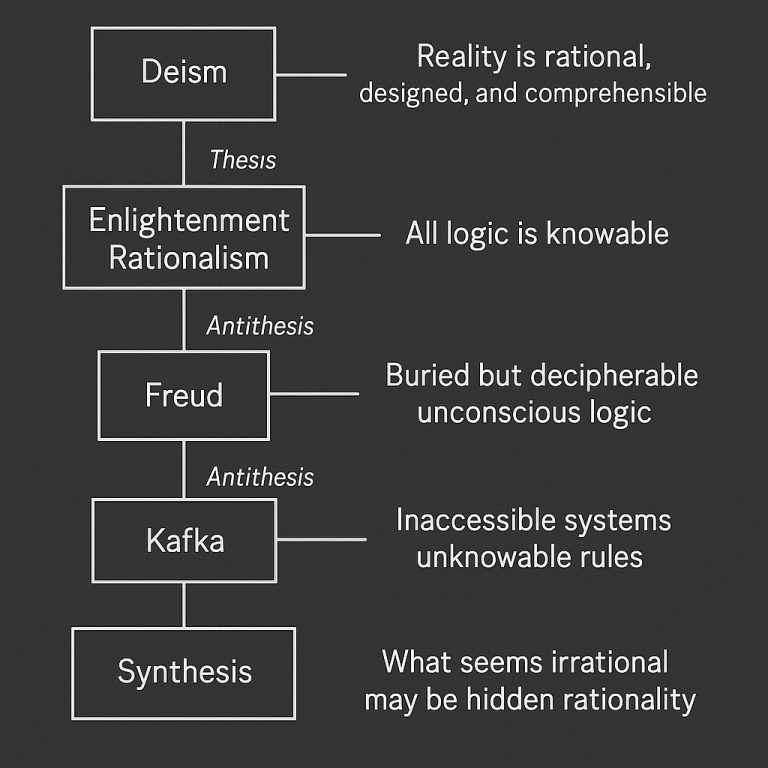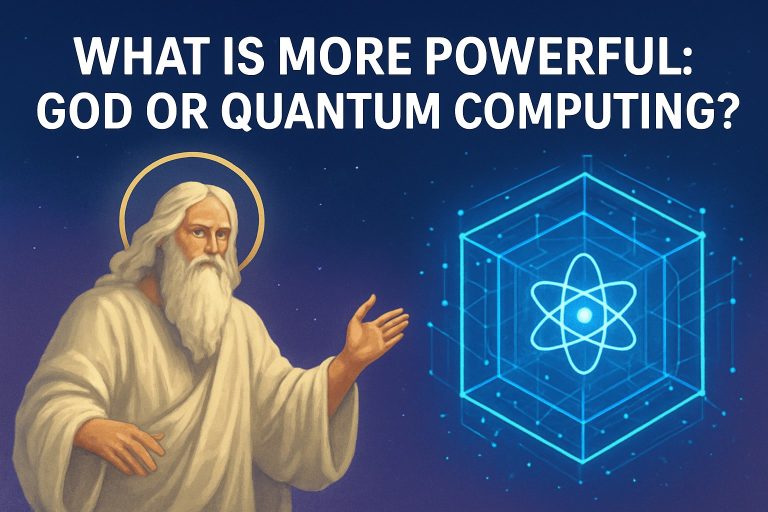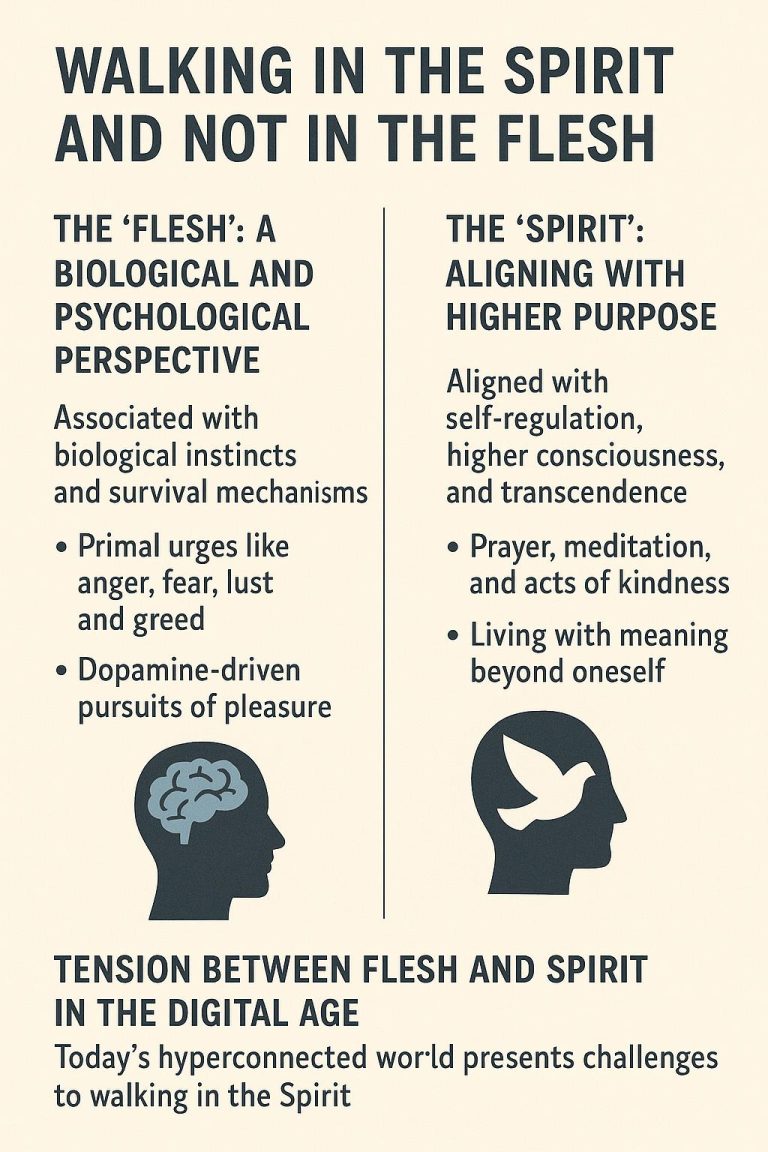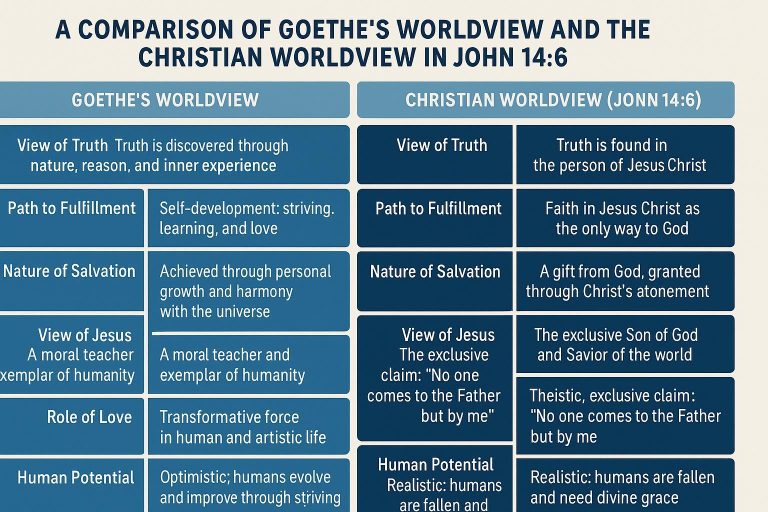The Interconnection of Goethe’s Faust II and Modern Artificial Intelligence
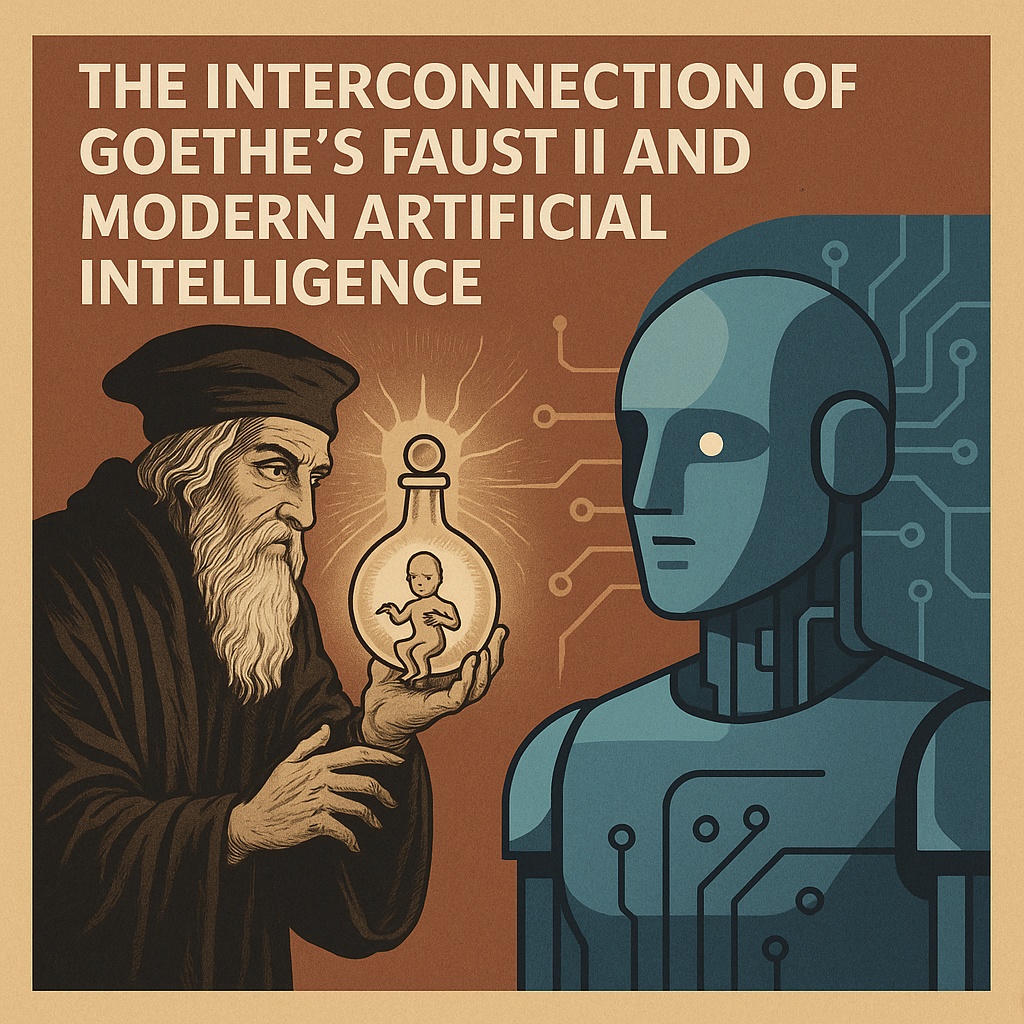
Faust’s Quest for Ultimate Knowledge
Johann Wolfgang von Goethe’s Faust II is a masterwork of philosophical and poetic depth, stretching the limits of human ambition, knowledge, and creativity. While the play was completed in the early 19th century, its themes resonate profoundly with one of the most transformative forces of the 21st century: artificial intelligence (AI). At the heart of both Faust II and AI lies a fundamental question — what does it mean to push the boundaries of human capacity, and at what cost?
In Faust II, the protagonist, Dr. Faust, seeks a kind of total understanding and mastery over the world, far beyond the conventional bounds of science, philosophy, or religion. His pact with Mephistopheles symbolizes the Faustian bargain — trading moral integrity and spiritual wholeness for power, innovation, and worldly success. Faust wants to become a creator in his own right, eventually culminating in his vision of reclaiming land from the sea, reshaping the world according to human will.
This ambition parallels today’s development of AI, which seeks to create machines that can replicate, and even surpass, human intelligence. Scientists, engineers, and entrepreneurs are building systems that can learn, reason, create, and decide — tasks once thought exclusive to the human mind. Just as Faust sought to control nature and surpass his limits, so too does AI reflect a collective human drive to extend cognitive capabilities through technology.
Artificial Creation: Homunculus and Synthetic Intelligence
One of the most striking elements in Faust II is the creation of the Homunculus — a synthetic human, born not of nature but of science and alchemical art. This artificial being, created in a lab, prefigures modern AI in both its constructed origin and its philosophical implications. The Homunculus raises questions about what it means to be alive, conscious, and autonomous — all of which are mirrored in debates surrounding sentient AI.
Modern AI research raises similar issues: Can machines truly “think”? Will they one day possess consciousness? What rights or ethical considerations might arise for artificial beings? Goethe’s speculative imagination prefigures these modern dilemmas, offering a mythic lens through which to examine our current technological pursuits.
Ethics, Hubris, and Responsibility
At its core, Faust II is a cautionary tale about the dangers of unchecked ambition. Faust’s noble intentions — to create, to improve, to conquer ignorance — are tainted by moral compromises and destructive consequences. His grand project leads to displacement and death, even as it appears to bring progress. Similarly, AI promises immense benefits — from medical breakthroughs to economic efficiency — but also poses serious ethical risks: surveillance, manipulation, job displacement, and the potential loss of human agency.
We are now grappling with our own Faustian bargains. Who controls AI? Who is responsible for its impact? Will we, like Faust, realize too late the unintended consequences of our creations? Or can we, unlike Faust, act with foresight and humility?
The Vision of a Better Future
Despite its tragic overtones, Faust II ends on a note of redemption. Faust envisions a better world — one that is not merely a playground for power, but a space for communal striving and freedom. In the final scenes, Goethe hints at salvation not through domination, but through connection, humility, and grace.
This, too, can inform our approach to AI. The true promise of AI is not in replacing humanity, but in augmenting it — using intelligent systems to support human flourishing, social justice, and environmental sustainability. If we heed the lessons of Faust, we might build not just smarter machines, but wiser societies.
Conclusion
Goethe’s Faust II is a timeless mirror to humanity’s desire to transcend its limits. The parallels with artificial intelligence are striking — in the ambition to create, the danger of hubris, and the potential for redemption. As we continue to develop and deploy AI, the drama of Faust challenges us to ask: what do we truly seek, and at what cost? And most importantly, how can we ensure that our creations serve the good, not only of the powerful, but of all humanity?


